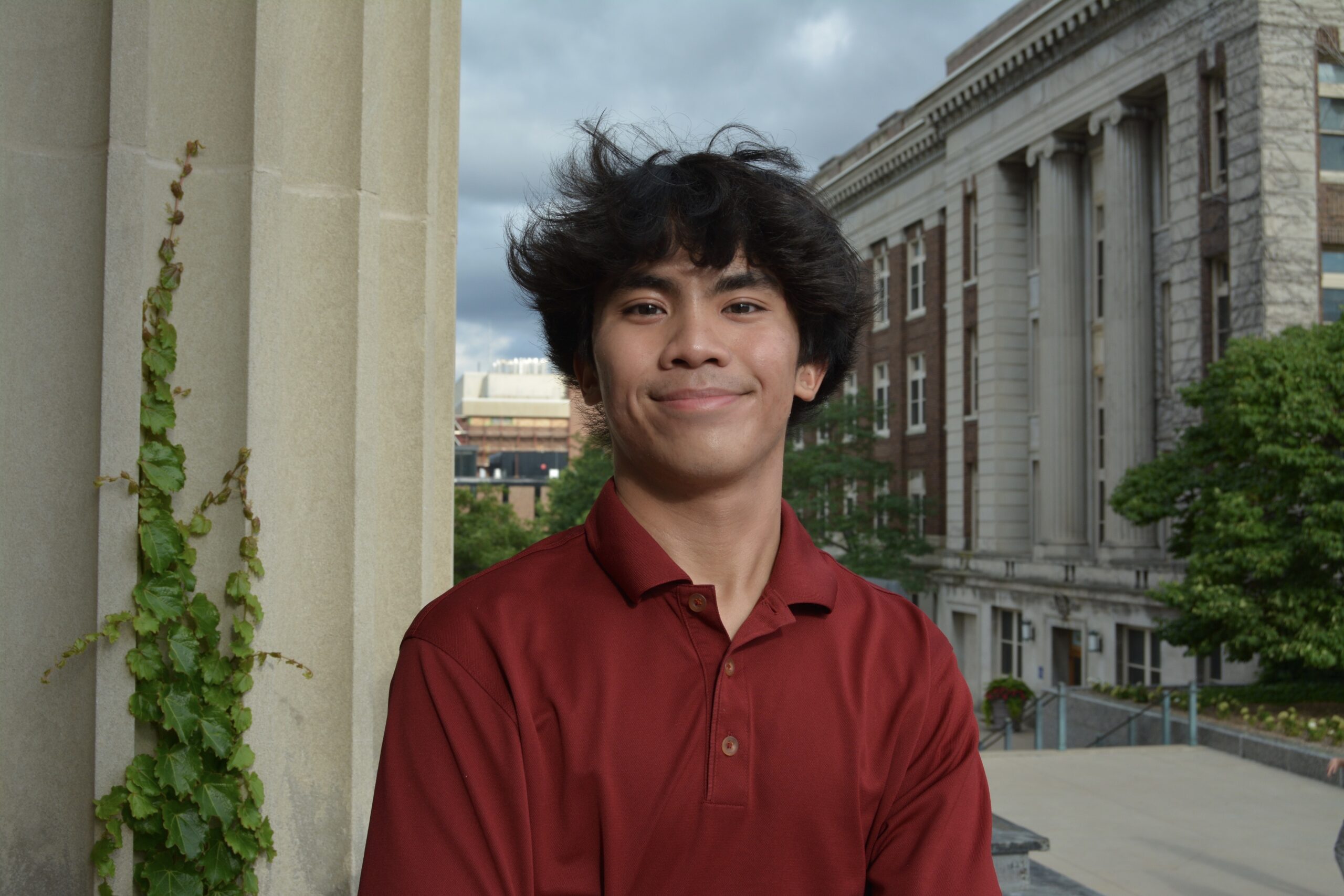Luke Supena, a freshman at the University of Minnesota, is majoring in political science and hopes to pursue a career in immigration law. His mother was born and raised in Panite, and his father was raised in Mindanao. Luke was born in the Philippines and immigrated to the U.S. in 2014.
“I’m a part of PSA (Philippine Student Association). I’m an Intern on their board. It’s one way for me, and I’m sure many other Filipino Americans do, to keep in touch with your culture. I think it’s a beautiful thing to be able to be involved in two different cultures because you could never really see the world fully in just one lens, like the American lens. If you’re involved in other cultures and that kind of stuff, it’s really verified.
I’s this dilemma that a lot of immigrant kids have every day is that you can never be American enough, but you could also be never too much. I’m Filipino. I can never be Filipino enough, you know. Of course, I’ve definitely assimilated into American culture and society. But also, there’s still a part of me that’s still Filipino, no matter what. I can’t change that. So I feel like it’s just a matter of me trying to balance those two again. Balance those two identities.
A lot of people in these other countries, like the Philippines, which are third-world countries, and a lot of people, they hope and dream to just come here, even get a taste of what America is like. And then, I’m here, living here, experiencing American life, being in college, here in America every single day. I feel like a lot of people take it for granted. But looking at it from a world lens, a lot of people, they want to be in a position like me. I’m just grateful to think that every single day, that’s what I’m experiencing.
I was still a fourth grader in 2016, but for some reason, I just had all the fear. I was like, ‘What if I get kicked out? What if ABCD happens?’ So I would definitely say, not now, but ever since 2016, there’s definitely been a rift in how we feel about our place here in America. I would say now that I’m older and know how politics here works. I think, personally, I feel secure because we have papers and now we’re citizens. There’s a more sense of security for us, but definitely not for other people, and it makes me feel bad. Hopefully, I get into law school. I want to get into immigration law specifically because I want to be able to help other people get through that process. It’s very complicated.
A lot of people just fail to acknowledge that America was built on the backs of immigrants. America is an immigrant country. I feel like a lot of that gets forgotten in current discourse, and I feel like it’s important to bring that back into the picture so people really understand the impact of immigrants, especially in this country, even now.”
This interview has been edited for length and clarity.
Interview by Kathryn Gage

